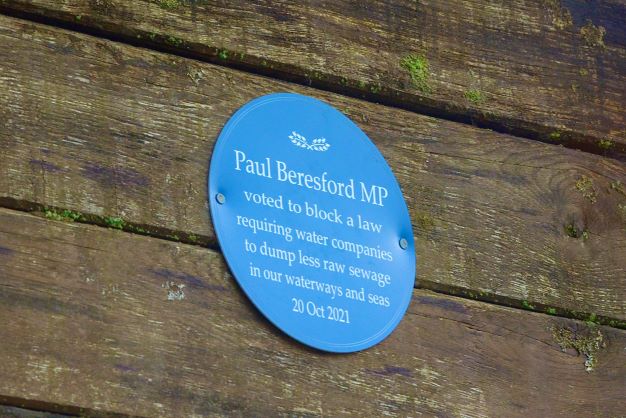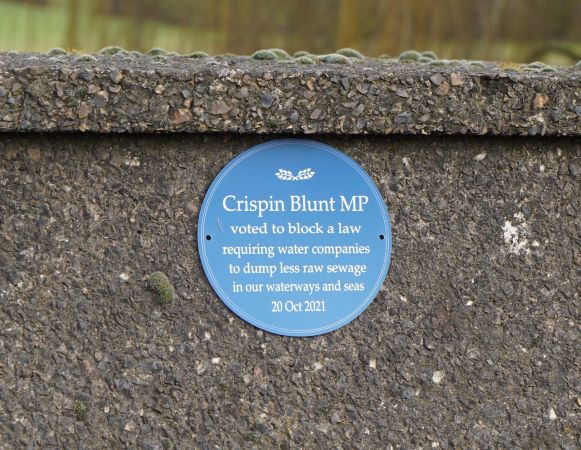blue plaques
20 October 2021 refers to the date when MPs blocked an amendment to the Environment Bill, which would have forced water companies in the UK to properly clean up sewage before discharge. Instead, it was decided to incentivise them to make improvements or be fined. Since privatisation, water companies have done little to prevent sewage spills, despite making £2.8 billion profit in 2021.
In 2021, the sewer storm overflow at Dorking Treatment Works in Pixham spilled 64 times for a total of 613 hours, discharging into the River Mole. And of course, this is only one of many Waste Water Treatment Plants that discharges into our local river and its tributaries.
In December 2022 the Environment Agency announced it was pushing back targets to clean up England’s rivers, lakes and coastal waters from 2027 to 2063, adding further risk to vulnerable ecosystems and precious water resources.
On 25th January 2023 the government approved new environmental targets:
‘Targets to cut harmful pollution reaching our rivers will help achieve our ambition for more water bodies to be in their natural state, with an 80% cut in total phosphorus pollution from wastewater treatments by 2038 helping to safeguard our waterways.’ www.Gov.uk
2038 is fifteen years away.
Phosphate pollution can cause excessive growth of algae, which can decrease the level of oxygen dissolved in river water, starving fish and water plants of oxygen and depriving them of sunlight. A 2022 report from Planet Patrol found that the River Mole was amongst the worst for water quality, failing to meet acceptable levels of nitrate, phosphate, total coliform and pH levels.




